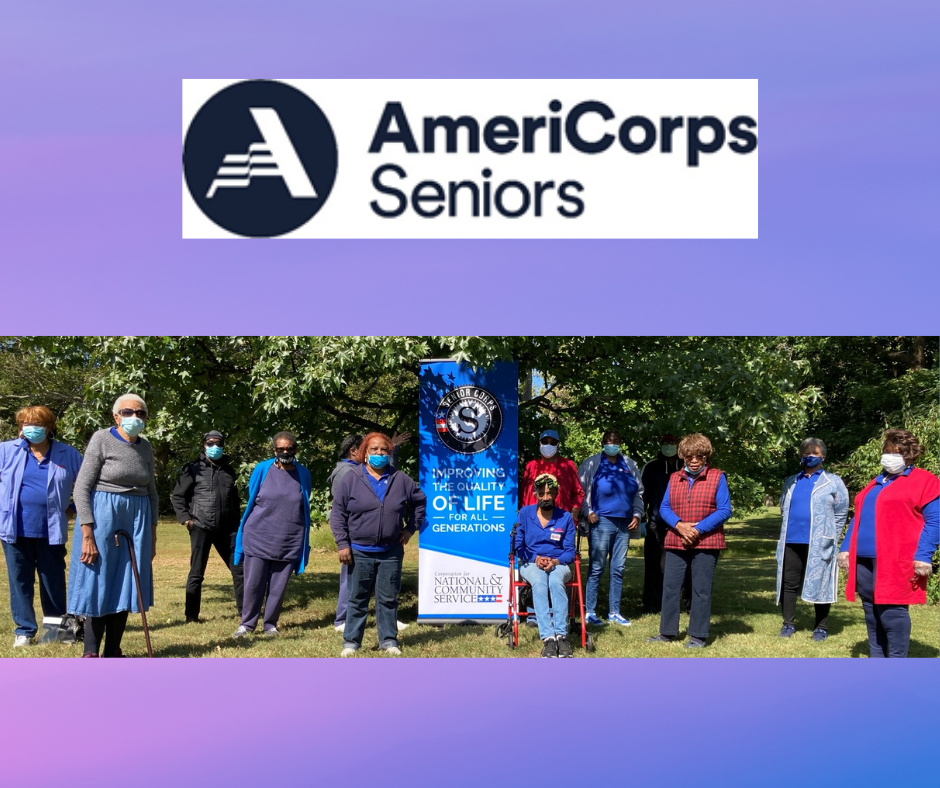
The onset of the pandemic hit NJ’s Foster Grandparent Program hard. The novel coronavirus was particularly concerning to our program because according to public health officials, two of the most vulnerable groups at risk were seniors aged 65 and older and school-age children. Unfortunately, those also happen to be the core segments of our program’s demographics…
New Jersey’s Foster Grandparent Program (NJ/FGP), part of AmeriCorps Seniors, provides low-income senior residents, ages 55 and up, with the opportunity to work one-on-one as mentors and role models to children with special or exceptional needs.
Volunteers, who must be retired and/or receiving Social Security, do this work in classrooms or institutionalized settings throughout the state. Income eligibility (200% under the federal poverty line), criminal history and background checks are required for volunteers to serve, and they receive a tax-free stipend of $3 an hour. Travel reimbursement, free breakfast and lunch provisions, supplemental accident and liability insurance and an annual award-recognition event are some of the program benefits.
Foster Grandparents support schools and community needs related to children where traditional services are not available, such as encouraging socialization, modeling appropriate behaviors and skills, assisting in the development of motor and learning skills, tutoring, listening, talking, singing, walking and reading.
THE PANDEMIC
In March, the new reality of pandemic-related lockdowns, social distancing and limits on travel and gatherings were put in place as safety measures by Gov. Murphy’s executive orders. Such measures kept our Foster Grandparent volunteers at home and off duty.
Major fears for our volunteers escalated because many were afraid or not able to leave their homes, even to shop for food. And a few of our volunteers suffer from food insecurities and isolation.
HELP AND KEEPING CONNECTED
My colleagues and I made weekly phone checks to our volunteers, home visits to drop off food to those in need and ran errands as a courtesy to those who expressed a need. We also completed monthly conference calls to keep all of our volunteers connected to the program and each other.
Fortunately, the national office of AmeriCorps Seniors has made it possible to continue monthly stipends during this period by providing a COVID-19 allowance until December 31, 2020. Many of our volunteers have come to rely on these stipends.
BACK TO SERVICE
Now that some of the Governor’s executive orders, COVID curfews and closure restrictions are lifting, and some schools have re-opened, we are working to transition our volunteers back into service. A number of our volunteers remain concerned about the potential risks that COVID-19 may have on their health, and we’re concerned for them as well. Nonetheless, the majority cannot wait to go back to their sites. They love and miss working with the children.
Our pathway back to service includes practicing social distancing, using required personal protective equipment (PPE) and taking on new permissible service roles.
DIGITAL DIVIDE
COVID-19 thrusted our senior volunteers into the virtual world. Many of our older adults were not very “tech-savvy” and nervous about all things web-related. Right away, we saw first-hand how Foster Grandparents were deeply affected by the digital divide. Our volunteers not only lacked the knowledge of how to use technology, but they also lacked the equipment and access to the internet.
As a team, we developed a few solutions to address this issue, starting with training. We now have a mandatory “Computing 101” course that includes setting up WiFi, how to log in and how to use Zoom. We have also teamed up with CyberSeniors, a national organization whose mission is to bridge the digital divide, and Rutgers Extension to provide online training content and services.
Besides virtual engagement with the students during the coronavirus, our volunteers have been packing and delivering lunches to students in local NJ communities and serving as School Greeters to walk students to their classrooms, because parents are no longer allowed in school buildings. Those volunteers who are more tech-savvy are helping as in-person guides and assistants to students learning virtually at home or in the classroom.
GREAT GRANNIES!
Foster Grandparents join the program to give back to communities and offer their time, wisdom and unique skills. We are so pleased that NJ FGP volunteers are able to continue to serve children and their families throughout this pandemic.
It is quite rewarding to see our volunteers in their “second act” of life learning new skills and becoming essential resources. “Volunteers add positivity, care, and warmth that the children in our center need to thrive,” Program Director Pat Staltari says. “The volunteers give that extra love and attention that many of our students are not receiving at home. We love our grannies!”
When you volunteer, you’re not just helping others — you’re also helping yourself. Volunteering leads to new discoveries and new friends. Additionally, in a two-year AmeriCorps Seniors study completed in 2018, 85% of participants said that volunteering helped stabilize or improve their health. Plus, 88% of the volunteers said that they felt less isolated and now have a new purpose in life. Other research shows that volunteering helps you live longer and promotes a positive outlook on life. Join us!
For more information on NJ’s Foster Grandparent Program, and to meet guest blogger Lauren Lamin and Grandma LuLu, one of her volunteers, watch Aging Insights, Episode 110 on NJFA’s YouTube channel.
 Lauren Lamin (left) is a Program Coordinator with the New Jersey Foster Grandparent Program (NJ/FGP), an AmeriCorps Seniors program. NJ/FGP is sponsored by NJ Department of State, Governor’s Office of Volunteerism (GOV). Donna Teel is NJ/FGP Director and Rowena Madden is Executive Director GOV. For more information, visit https://nationalservice.gov/programs/senior-corps, follow @VolunteerNJ on Facebook, and email Lauren at lauren.lamin@sos.nj.gov.
Lauren Lamin (left) is a Program Coordinator with the New Jersey Foster Grandparent Program (NJ/FGP), an AmeriCorps Seniors program. NJ/FGP is sponsored by NJ Department of State, Governor’s Office of Volunteerism (GOV). Donna Teel is NJ/FGP Director and Rowena Madden is Executive Director GOV. For more information, visit https://nationalservice.gov/programs/senior-corps, follow @VolunteerNJ on Facebook, and email Lauren at lauren.lamin@sos.nj.gov.

